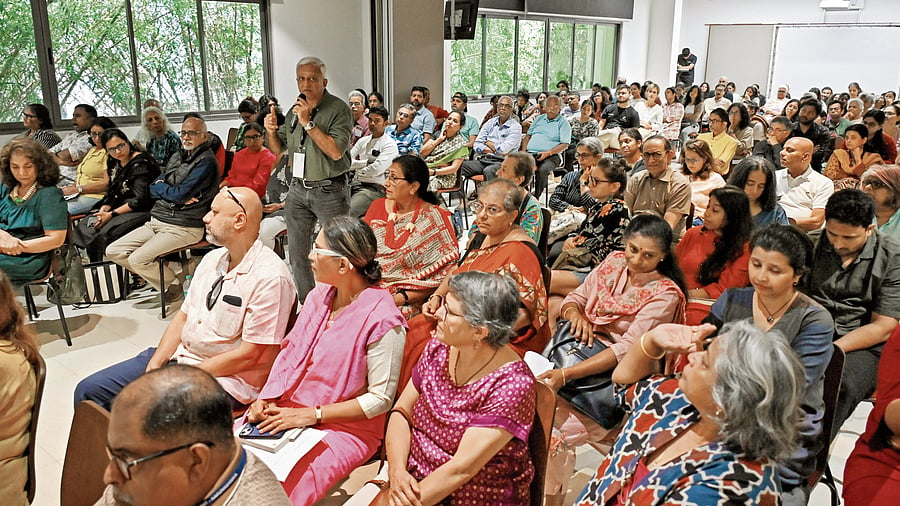
A majority of the participants at the living will workshop on Sunday were middle-aged.
Credit: DH PHOTO/PUSHKAR V
A workshop on drafting a living will drew around 100 participants in Bengaluru on Sunday.
Also called an Advance Medical Directive (AMD), a living will records a person’s medical treatment preferences when they become unable to communicate their wishes in the future. Unlike a property will, which comes into effect after death, a living will is activated while the person is alive. “Under current law, it’s valid only in cases of terminal illness where further treatment is unlikely to help or may lead to a vegetative state,” explained Dr Smriti Khanna, a palliative care consultant.
AMD has two core components: a list of treatments the person wishes to accept or refuse in the event of a terminal illness, and the names of up to three healthcare representatives (family or others) who can make decisions on their behalf.
Optionally, people can specify whether they would like to receive palliative care at hospital or at home or in their hometown. They can outline funeral rites they would like, as also preferred gender pronouns. In cases of non-heteronormative relationships, one can request healthcare workers to refer to the person of their choice as their partner.
According to consultant neurologist Dr Roop Gursahani, anyone aged 18 or older and of sound mind can draft an AMD at home on plain paper, in simple English or any other language. While it doesn’t require a lawyer or stamp paper, some prefer these for a sense of authenticity. The AMD must be attested before a notary, along with signatures of two witnesses. He recommends making multiple copies — one for personal record, one for each healthcare representative, one for the family or treating doctor, and one for the government.
AMDs can be updated. Dr Gursahani advises revising them every five years, in case of a major medical diagnosis or when one enters their 60s, and annually for those in their 80s or with declining health.
Dr Khanna runs a weekly living will clinic at Mumbai’s P D Hinduja Hospital where she works. Her visitors range from healthy 18-year-olds to people with early-stage cancer, organ failure, or age-related frailty. Many choose to refuse ventilator support, tube feeding, and CPR (cardiopulmonary resuscitation) in their AMDs. A less common request has been to not renew one’s pacemaker. To her “surprise”, many people specify in their AMD that they would like their organs donated.
Free template
‘Advance Medical Directive (Living Will) editable document format’ is available for free download at palliumindia.org.